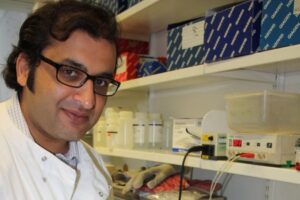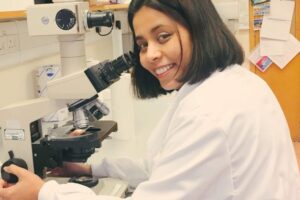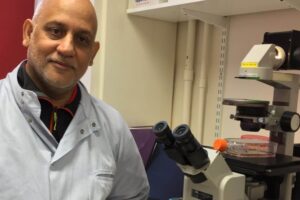Research
Understanding the increased risk of leukaemia for children with Down syndrome
Why children with down syndrome have a greatly increased risk of developing leukaemia?
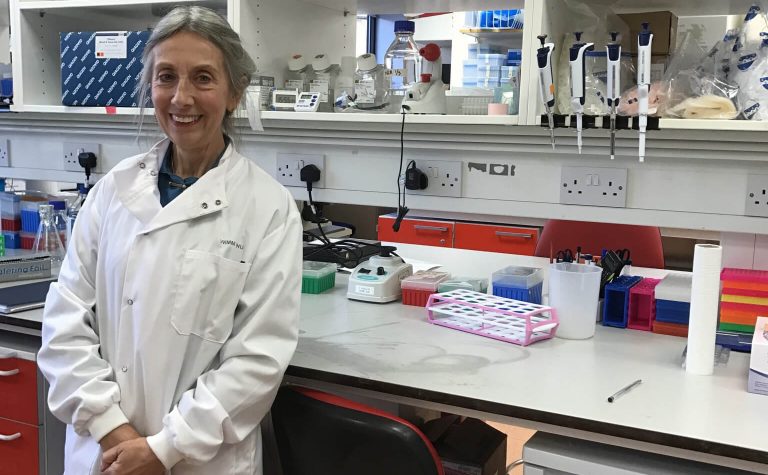
Project Details
- Global RNA profiles of trisomic, pre-leukaemic and leukaemic haemopoietic cells in Down syndrome
- Lead Researcher
- Professor Irene Roberts
- Research Centre
- University of Oxford
- City & Institution Postcode
- London NW1 7JR
- Start Date
- 1 June 2012
- Project Duration
- 4 years 9 months
- Grant Amount
- £205,373
Overview
All babies and children with Down syndrome (DS) have abnormalities in the production of their blood cells. Although leukaemia develops in only a minority of these children, the risk of a child with DS developing leukaemia is much higher than for children without DS. Children with DS have a 150-fold increased risk of developing acute myeloid leukaemia (AML) and a 33-fold increased risk of developing acute lymphoblastic leukaemia (ALL). We don’t yet know precisely why this is, but we do know that it involves chromosome 21. A third copy of this chromosome (also known as Trisomy 21 (T21)) is the underlying cause of Down syndrome. The leukaemic cells of many children without DS also have additional copies of all or part of chromosome 21. Leukaemia in Down syndrome gives us a unique way to study the distinct steps in development of childhood leukaemia: The research team has already shown that T21 leads to abnormal blood cell production in all newborns with DS. We also know that around 8 per cent of newborns with DS present with Transient Myeloproliferative Disorder (TMD). TMD spontaneously resolves in around 70 per cent of cases and progresses to acute leukaemia in the remaining 30 per cent of cases.
What difference will this project make?
This work should contribute significantly to our knowledge about how and why childhood leukaemia develops in children both with and without Down syndrome. The team has access to a network of collaborating neonatal units and paediatric haematology units. From this network they will obtain samples of normal cord blood, DS cord blood, blood from babies and children with TMD, and blood from babies and children with AML and ALL. Taking advantage of the latest genetic sequencing technology, the team will look for key differences in the genetic profiles of these samples. This complex work should provide vital information about the processes underlying the development of leukaemia both in children with and without DS. There is a good chance it will lead to identification of new approaches to preventing and treating leukaemia in children with DS, and childhood leukaemia in general.
About the Research Team
This work is being led by three world-leading authorities in the field of leukaemia and Down syndrome – Professor Irene Roberts and and Dr Paresh Vyas at the University of Oxford and Professor Anastasios Karadimitris from Imperial College London.
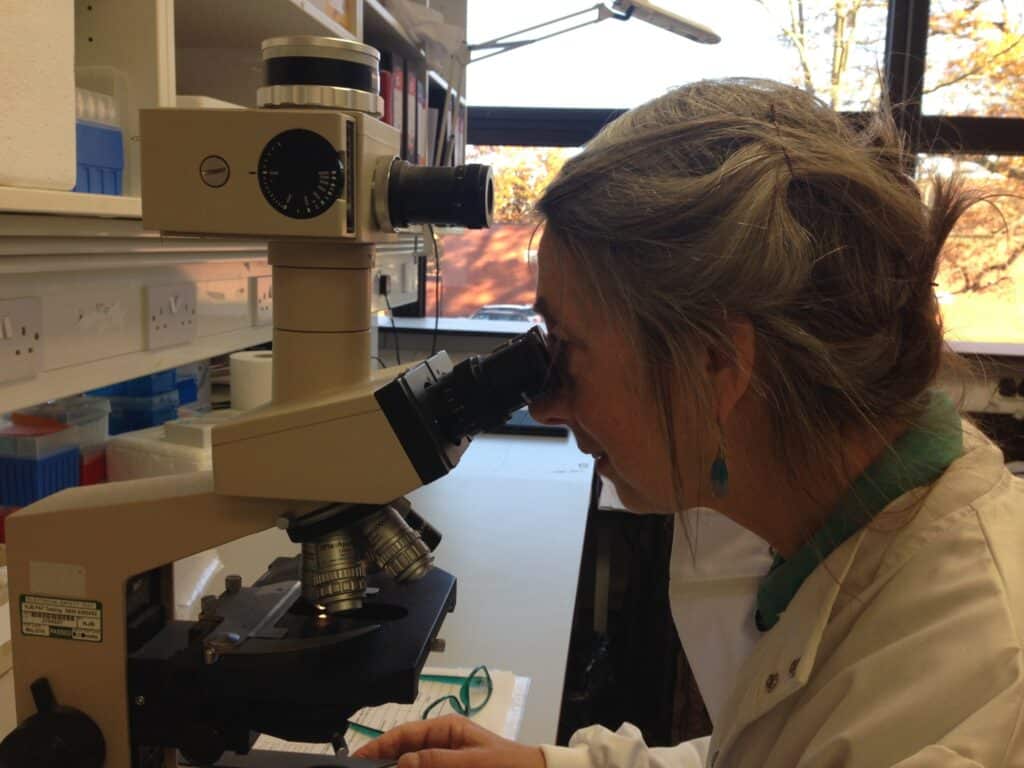
Learn more
Children with Down syndrome (DS) have a greatly increased risk of developing leukaemia. All babies and children with DS have abnormalities that affect how their bodies produce blood cells, but leukaemia develops in only a minority of them. This project, taking advantage of the unparalleled power of new technologies, aims to find out why.
We’re funding this project to find out why Children with Down syndrome have a greatly increased risk of developing leukaemia. Professor Irene hopes that understanding this will help us prevent and treat leukaemia in all children in the future.
Thank you
This research project on children with down syndrome have a greatly increased risk of developing leukaemia has been successfully completed. Your donations allow us to fund ground-breaking research that can improve treatments given to children with cancer. Thank you. Your help allows us to continue to find ways to drive up the chances of survival for children with cancer and reduce the toxic side effects that can affect the rest of their lives.
Other stories
We have lots of information to help you learn more about childhood cancer. From specific cancer types, to treatments and causes.

